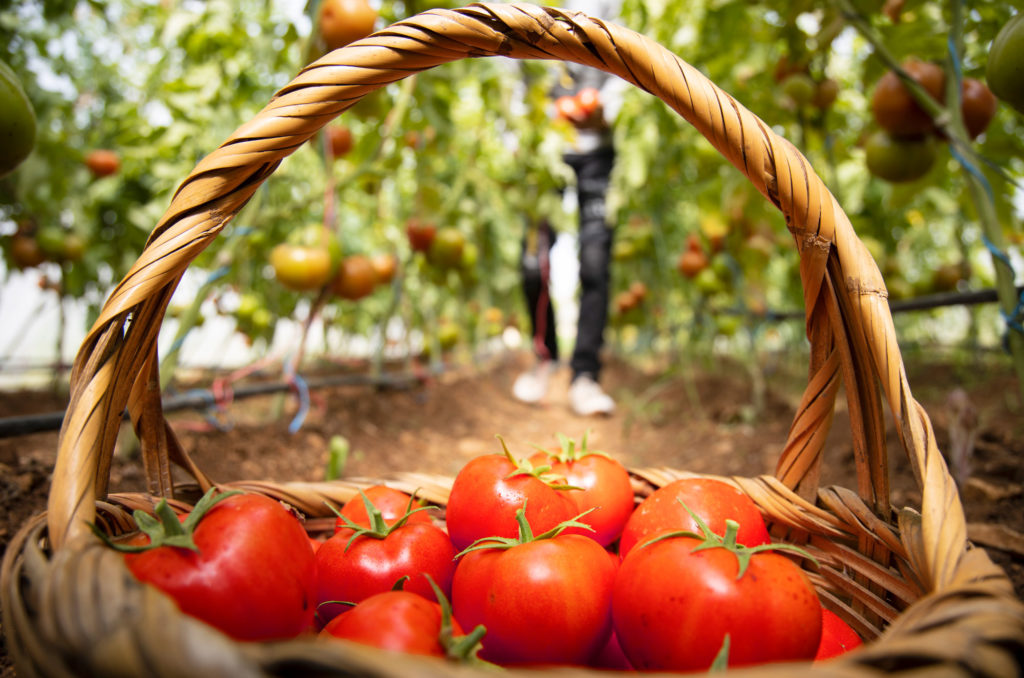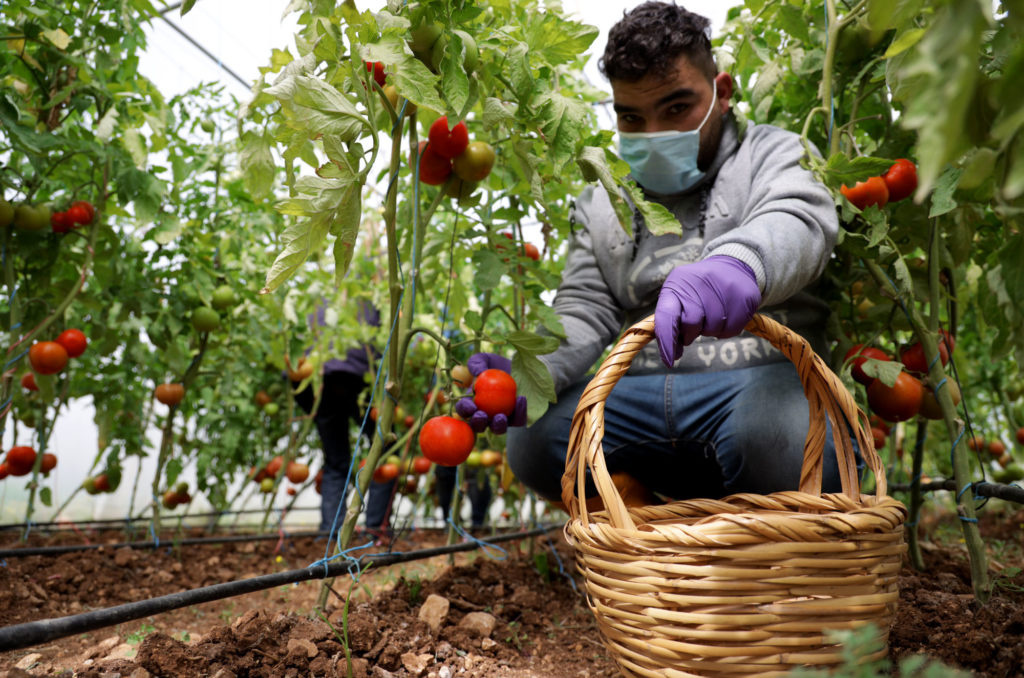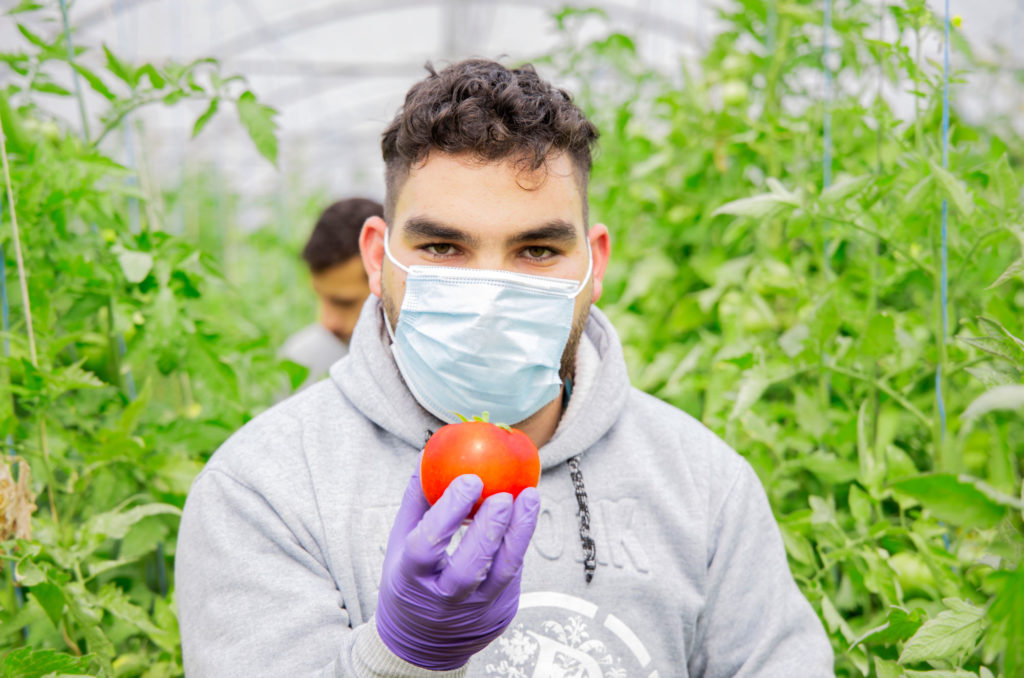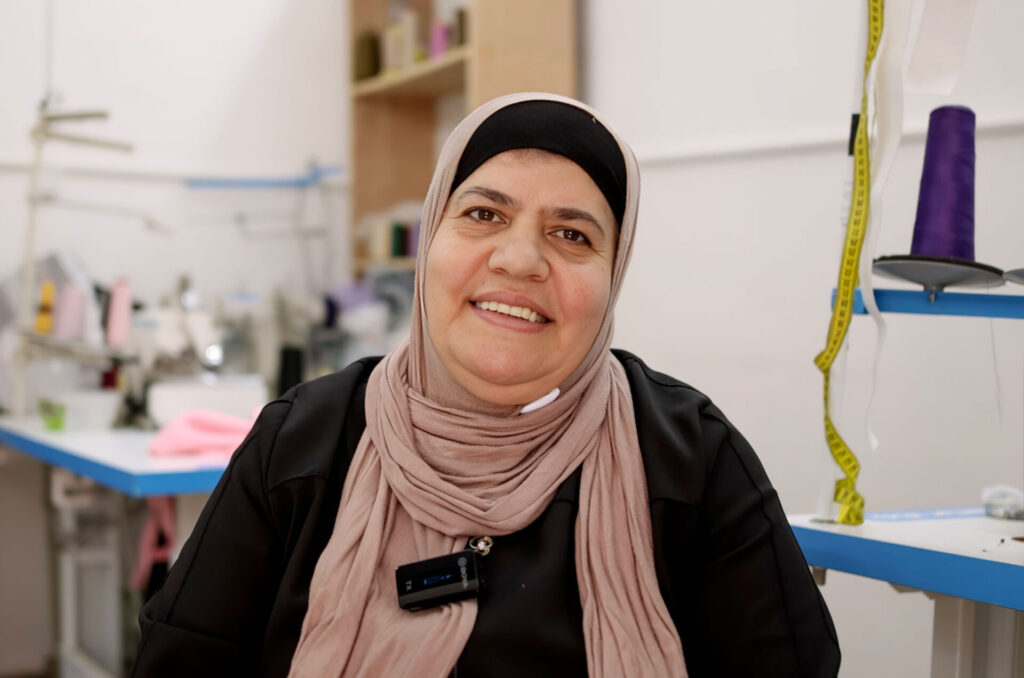Apr, 2021
Supporting local agriculture to combat food insecurity
Food prices have soared, forcing many families who have never needed assistance to rely on food aid. Today, more than half the population in Lebanon is now in poverty.
As concerns about food security grow in Lebanon, along with the financial crisis and ongoing COVID-19 lockdowns, many families who have access to land are abandoning their struggling businesses and wage work and going back to the soil. Those living in urban areas are finding planting on their rooftops, balconies — even the narrow ledges outside their windows.
Anera is engaging with this emerging response to food insecurity. Last year, Anera established an accelerated vocational agriculture course in Akkar, Lebanon’s most impoverished governorate. The first phase of the course involves learning the basics of agriculture: the dos and don’ts of how to prepare the soil, grow seedlings and build green houses. In the second phase, youth learn how to divide their growing space and plan for their harvest. Once the crops have been picked, they package the harvest for vulnerable families signed up to receive Anera’s produce baskets.
To ensure the employability and viability to these projects, we focus on engaging youth who are either already working in agriculture or whose families own arable land.

“We have farmers in need of an extra hand. We are surrounded by farm lands. Meanwhile these youth are struggling to find jobs — it doesn’t make sense!,” says Ibrahim Itany, the program manager at our implementing partner, Al Taalof Cultural and Social Association.

“We are surrounded by farm lands. Meanwhile these youth are struggling to find jobs — it doesn’t make sense!”

We match the young farmers with respected established farmers in the area. In this way, they are gaining experience and supporting local farmers to increase production. Anera supports the vocational students by providing daily stipends for their labor.
Farming is hard work and becomes even more challenging during a pandemic that necessitates safety protocols. The students and their trainer wear face masks when in close proximity, even while working the land.
Tarik is a 19-year-old Lebanese participant in our vocation program. He worked at a hair salon before the economic crash. “I left my job as a hairdresser because we were barely working,” he says. “Working with farmers is the best option now.”
“I have learned to install greenhouses with engineer Johnny Aoun. We built five greenhouses and we grew so many vegetables that we distributed to poor families in the nearby villages.”

Ahmad is another agricultural student. The 22 year old already had some experience farming. He took this course to deepen his knowledge. He is glad to be contributing to society at the same time. He says,
“We are giving ample produce baskets to more than 300 families! That’s a huge accomplishment. People are hungry — and nothing beats fresh produce.”
Agricultural projects such as this one are crucial to Lebanon’s future. They are sustainable, scalable and build the country’s labor capacity. Through this program, Anera aims to increase the number of young farmers and provide consumers with an alternative to imported or store-bought produce.
Itany says the project has provided,
“a unique opportunity for the youth as well as the local community, who greatly benefited from the distribution of vegetables. The crops produced about 300 kilograms of cucumbers and 350 kilograms of tomatoes. The baskets also included cabbage, cauliflower and lettuce. We produced more than 15 kilograms of bell peppers and 15 kilograms of chili red peppers.”
This project is part of our youth empowerment, education and employability program, undertaken in partnership with UNICEF.


